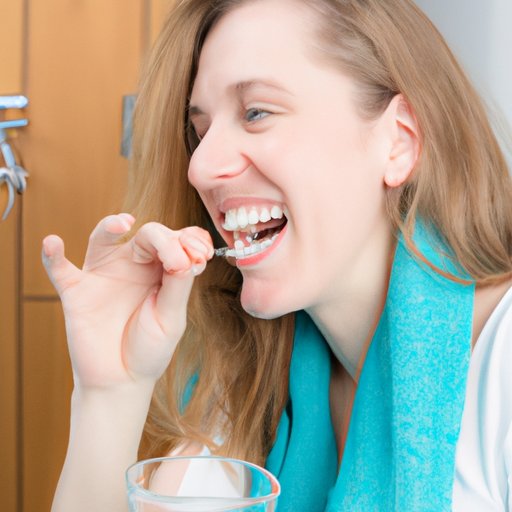Introduction
Gingivitis is an inflammatory condition of the gums. It’s caused by plaque buildup on the teeth that irritates the gums and can lead to gum recession and tooth loss if left untreated. Symptoms of gingivitis include red, swollen, bleeding gums, bad breath, and receding gums.
Practicing Good Oral Hygiene
The best way to prevent and treat gingivitis is to practice good oral hygiene. Brushing your teeth twice daily for two minutes with a soft-bristled toothbrush and fluoride toothpaste will help remove plaque buildup from your teeth. It’s also important to floss to remove food particles and plaque from between your teeth. Avoiding sugary foods and drinks that can contribute to plaque formation is also important in preventing gingivitis.
Using an Antibacterial Mouthwash
Using an antibacterial mouthwash can be beneficial in treating gingivitis. It helps to kill bacteria that can cause plaque buildup, which can lead to gingivitis. It’s important to follow the directions on the product label when using an antibacterial mouthwash. Generally, you should swish the mouthwash around your mouth for 30 seconds and then spit it out.
Other Home Remedies
In addition to practicing good oral hygiene and using an antibacterial mouthwash, there are other home remedies that can help treat gingivitis. Rinsing your mouth with a salt water or baking soda solution can help reduce inflammation and pain. You can also apply clove oil directly to the gums to reduce pain and discomfort.
Conclusion
Gingivitis is an inflammatory condition of the gums that can lead to serious complications if left untreated. The best way to treat gingivitis at home is to practice good oral hygiene, use an antibacterial mouthwash, and try other home remedies such as salt water or baking soda solutions and clove oil applications. However, it’s important to seek professional medical advice if symptoms persist or worsen.


